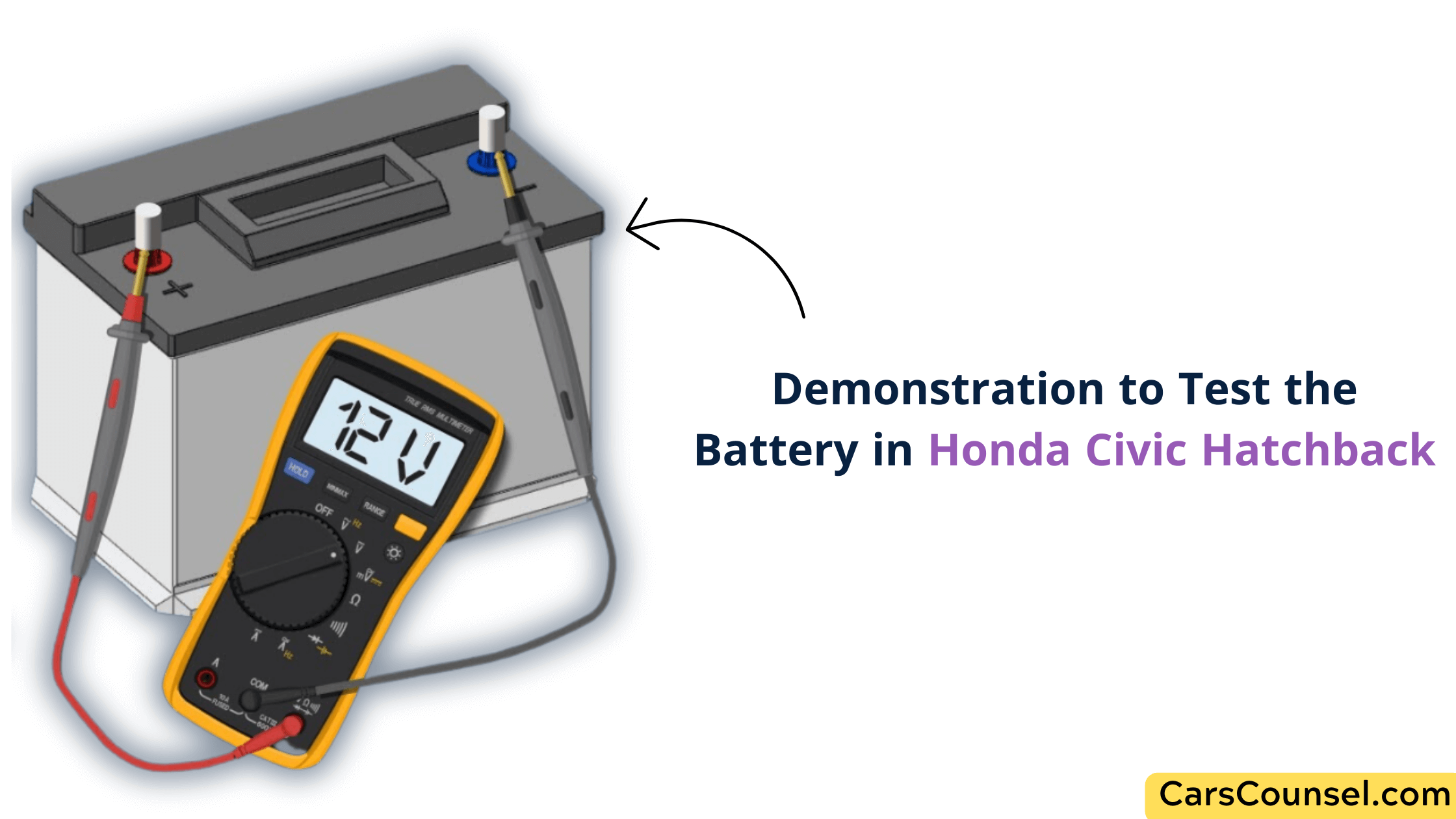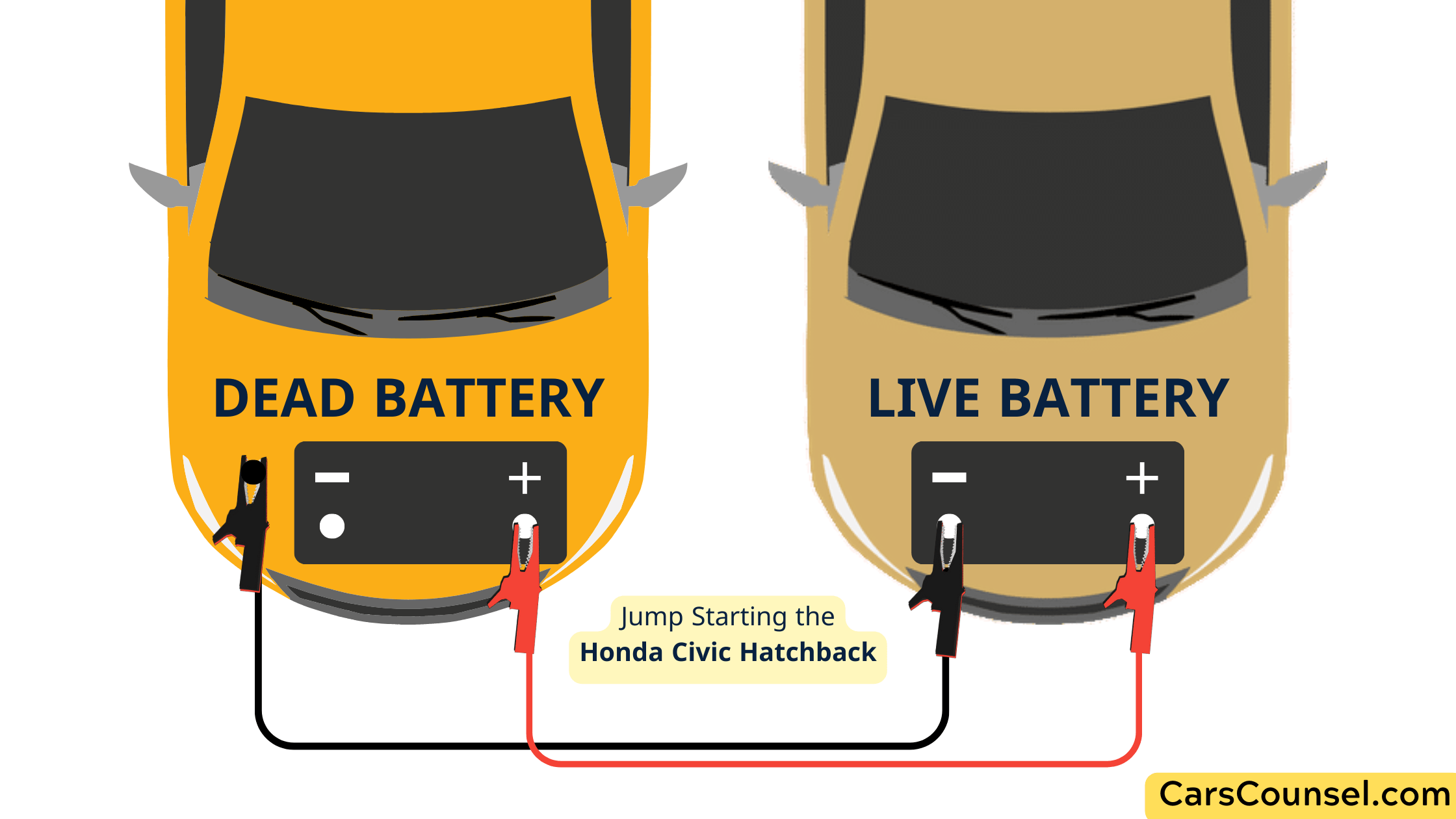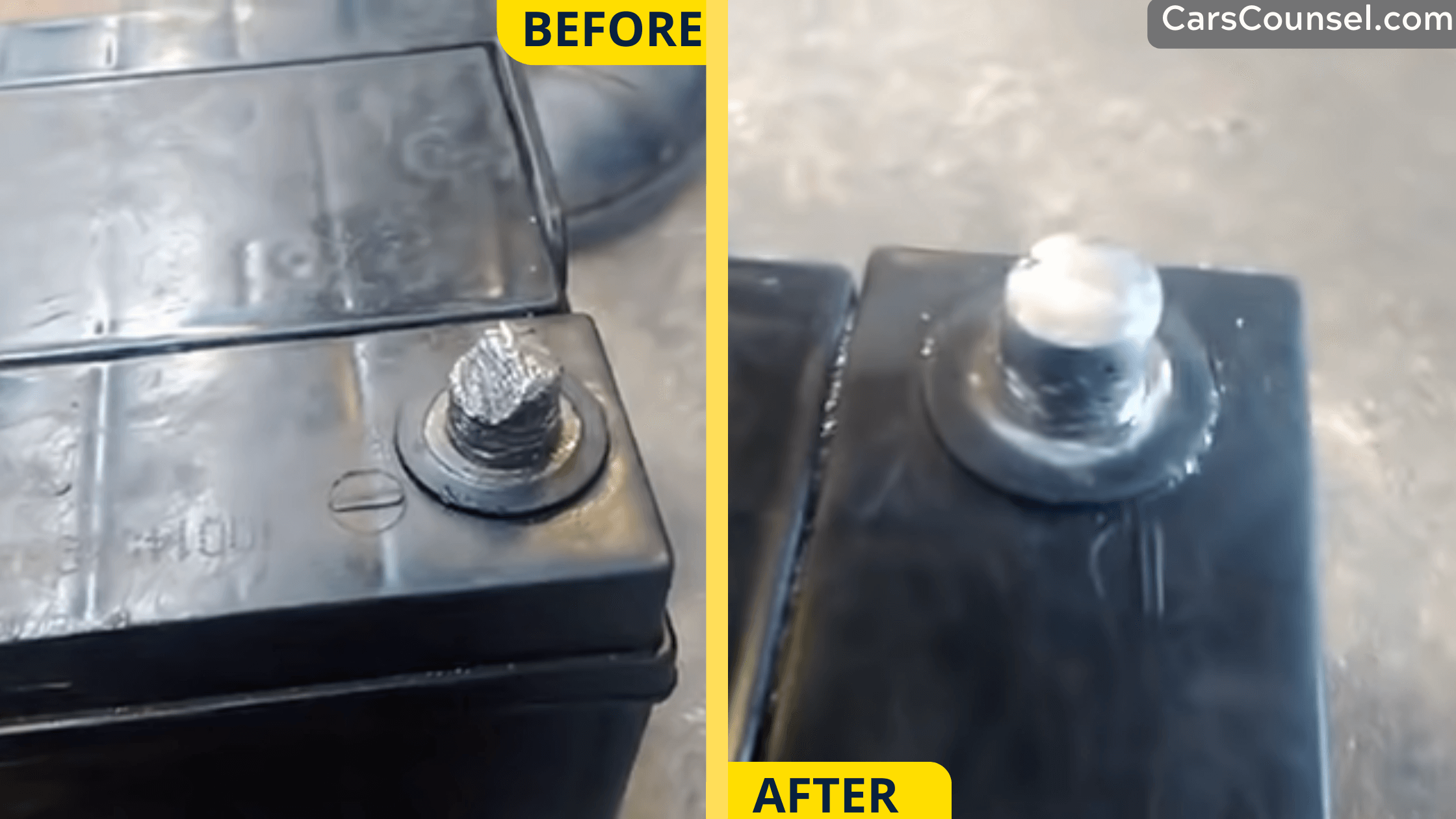
It’s 8:00 AM. You’re all set in your Honda Civic Hatchback, but when you turn the ignition, instead of roaring to life, all you hear is a clicking sound. Your day’s plans come to a sudden halt.
Why won’t your car start? Is there a quick fix?
Dive into insights from us. We’ll break down the usual suspects when your engine only clicks and does not start and offer potential temporary solutions.
Typical reasons for a clicking sound and no crank in Honda Civic Hatchback include a depleted battery, corroded battery terminals, inadequate electrical connection to the starter, improper ground connection, and a malfunctioning starter motor.
If your Honda Civic Hatchback clicks and won’t start, try jump-starting it with jumper cables and another vehicle. If it starts, it may be a weak battery. If not, check the battery terminals for corrosion, clean them, and try again.
If this is still an issue, follow us with the post for a complete solution.
In addition to the Honda Civic Hatchback, these solutions are applicable to various other models from Honda such as the Accord, Civic Si Sedan, Civic Sedan and Cr-V Hybrid.
Quick Navigation
Quick Overview of Issues and Solutions
[su_table responsive=”yes”]
| Reason | Sound Indication | Additional Information |
| Depleted Battery | Rapid Clicking | This may be due to a faulty alternator, an unretainable charge, or a slow energy leak |
| Oxidized Battery Terminals | Rapid Clicking | Noticeable corrosion is present on the battery terminals |
| Unsecure Terminal Connection | Rapid Clicking | Can be adjusted manually |
| Alternator Issues | Rapid or Slow Clicking | Activates battery warning light during the journey |
| Faulty Starter | Single Loud Clunk | Can potentially be rectified temporarily by tapping it with a hammer |
[/su_table]
1. Depleted Battery
A drain battery is a primary reason for the clicking sound and failure to start in Honda Civic Hatchback. When you hear this clicking from the engine bay as you attempt to start the vehicle, it suggests the battery has sufficient charge to trigger the solenoid (the clicking’s origin), but not ample power for the starter.
The starter motor necessitates a significant electric current to initiate the engine. In contrast, accessories like lights and wipers need minimal current. So, even if your Honda Civic Hatchback‘s electrical accessories function correctly, a weak battery might still be the issue.
Dashboard Lights Flickering and Quick Clicking Sounds
A sign of a weak battery in the Honda Civic Hatchback can be inconsistent dashboard lights or a fast-paced clicking sound during engine start attempts. If the battery lacks the necessary charge to energize the starter motor and you attempt to start the engine, the battery’s voltage can drop too low.
This means it won’t adequately power the lights, accessories, and, notably, the starter. This fast clicking could be due to a relay in the fuse box or the starter solenoid.
Rapid Clicking Sound
Checking the Battery in Civic Hatchback
To see if the Civic Hatchback‘s 12v battery is good, you can use a tool called a multimeter.
A good battery should have 12.6 volts or more when it’s fully charged.

But remember, even if it shows more than 12.4 volts, it might not be strong enough to start the car sometimes.
Voltage Drop Test
Another approach is to monitor the battery’s voltage drop when attempting to start the engine. If the voltage sharply declines, dipping below 10 volts, the battery lacks the necessary charge for engine initiation.
This could result from internal battery wear, prolonged vehicle inactivity, or a potential alternator issue in your Civic Hatchback not charging the battery correctly.
A car battery can last from 3 to 5 years if you live in a place with regular weather, drive normally, and your car’s charging system is working fine.
2. Jump Starting the Civic Hatchback
If you suspect a dead battery, jump-starting your Civic Hatchback is practical. Utilize jumper cables paired with a charged battery from another vehicle, or opt for a battery booster if you have one on hand.
Steps

- Ensure both vehicles’ engines are turned off and their transmissions are set to “N (Neutral)” or “P (Park)”.
- Connect the red cable to the positive terminal of the Civic Hatchback‘s drained battery.
- Attach the opposite end of the red cable to the positive terminal of the working battery.
- Fasten the black cable to the negative terminal of the functioning battery.
- Connect the other end of the black cable to an unpainted metal section of your Civic Hatchback‘s body or engine.
- Proceed to start your Car.
- Once running, carefully disconnect the cables in the opposite order of attachment.
Caution: A Jump starting while the vehicle’s engine supplying the donor battery is running can risk damage to the alternator or other electrical parts. It’s advised to ensure the donor vehicle’s engine is turned off when jump-starting your Civic Hatchback.
3. Loose or Corroded Battery Posts/Terminals
First, look at the wires attached to the battery ends. These ends help connect the battery to the car’s starting system and wires.
Loose Battery Connection
What you need: Wrench
Check the battery ends. They’re too loose if they aren’t rusty and move when you touch them. They should be firm and not move. If you’re stuck and don’t have a wrench, press down and turn the loose end.
Then, try to start your Car. Do this a few times until it works. When you get back home, make sure to tighten it up well.
Corroded Battery Ends
What you need: Wire brush, Wrench, Gloves
Be careful! Battery acid can hurt your eyes and skin.
Be safe! If your car’s battery ends are rusty, clean them up to get going again.
Cleaning the Battery Ends

First, use a wrench to loosen the ends. Always start by removing the negative end of your car battery. Remember not to let the wrench touch both ends simultaneously, or you might be shocked.
Also, be careful not to let the wrench touch any metal while working on the positive end to avoid a shock. Then, clean the battery posts. You can use a wire brush or even some sandpaper.
Many gas stations sell tools for this, like battery cleaners or wire brushes. After cleaning, attach the positive end back first, then the negative one.
Once everything’s connected and clean, try starting your car. If it works, let it run for a while to ensure the battery gets charged before you turn the car.
4. Bad Connection to the Starter
If there’s a problem with the starter or its relay (a kind of power-switch for the starter), you’ll usually hear a single loud click instead of many fast clicks.
When you turn the key or press the start button, just one click can signal a faulty starter. Sometimes, giving the starter a gentle tap can make it work temporarily, but this isn’t a long-term solution.
Most times, you’ll have to fix or replace the starter. If you jumpstart your car, head to the nearest mechanic to check it out.
Even if the click goes away, it could come back. If, after a jumpstart or tapping the starter, the engine still doesn’t start, it’s best to call for a tow and get a professional to look at it. Starters have varying lifespans.
They can last from 30,000 to 200,000 miles, depending on the car repair and how it’s driven. Things like tough weather or the engine’s health can reduce how long a starter lasts.
5. Problematic Starter Motor (Quite Possible)
Clicking from the starter motor Once you’re sure the battery power is good and the battery ends are secure and clean, the following probable reason for the clicking sound and failure to start is a malfunctioning starter motor.
A faulty starter often produces a sound closer to a clunk than a mere click when you turn the key.
If you’re stuck somewhere, you could try tapping the starter with a hammer to see if that helps it start up.
6. Poor Ground Connection
What’s a Ground Connection?
The battery’s negative end is tied to the Civic Hatchback‘s body or frame. This is called the ground connection. The engine needs a ground connection too.
But because of how the engine is set up, electricity can’t flow easily between the engine and the car body. That’s why there’s a special wire or strap that connects the engine to the frame.
Why Is a Good Ground Connection Meaningful?
If your Civic Hatchback‘s ground connection gets rusty or dirty, you can run into all sorts of electrical problems. This includes the clicking sound and the car not starting.
The parts that help start the car, like the starter motor, need a good ground connection. If the ground connection isn’t good, the starter might still click, but the engine might not start.
How to See if The Ground Connection Is Okay?
To check the ground connection in the Civic Hatchback, you can test how well electricity flows from the battery’s negative end to the engine.
Use a tool called a multimeter set to measure resistance (ohms Ω).
Put one end on the battery’s negative terminal and the other on a bare part of the engine. The number on the multimeter should be very close to zero. Try the same test with the car’s frame or body.
Look at The Ground Wires
If the test shows a problem, look at the ground wires in your Civic Hatchback.
Clean them up with sandpaper if they look rusty or dirty at the connectors (where the wires connect to the battery, engine, or frame).
Engine Issues
On the rare occasion if the engine of your Civic Hatchback is stuck or seized, this could lead to the car not starting and producing a clicking sound. When this happens, the engine doesn’t turn on, but you’ll hear a single click from the part that tries to start the engine.
Usual reasons for the engine getting stuck include insufficient oil, not taking good care of the car, or water getting inside the engine. Usually, when this happens, the engine might stop suddenly with a loud noise and then not start again.
If your Car’s engine sounds normal but doesn’t start, first check for enough gas in the tank. If it’s low, put more gas in it.
If your car still won’t start, take it to a Honda car expert at an authorized Honda dealer. They can figure out what’s wrong and make your day less miserable.
Conclusion
In summary, Honda Civic Hatchback experiencing a clicking noise without starting typically signal a battery or starter issue. Owners must address this promptly to avoid potential further damages. By seeking professional advice, individuals can identify whether the battery needs recharging, the starter motor requires replacement, or another underlying issue is at fault.
Implementing the necessary solutions, like battery replacement or starter motor repair, can ensure the longevity and reliable performance of the Honda Civic Hatchback, enhancing user experience and safety on the roads.

